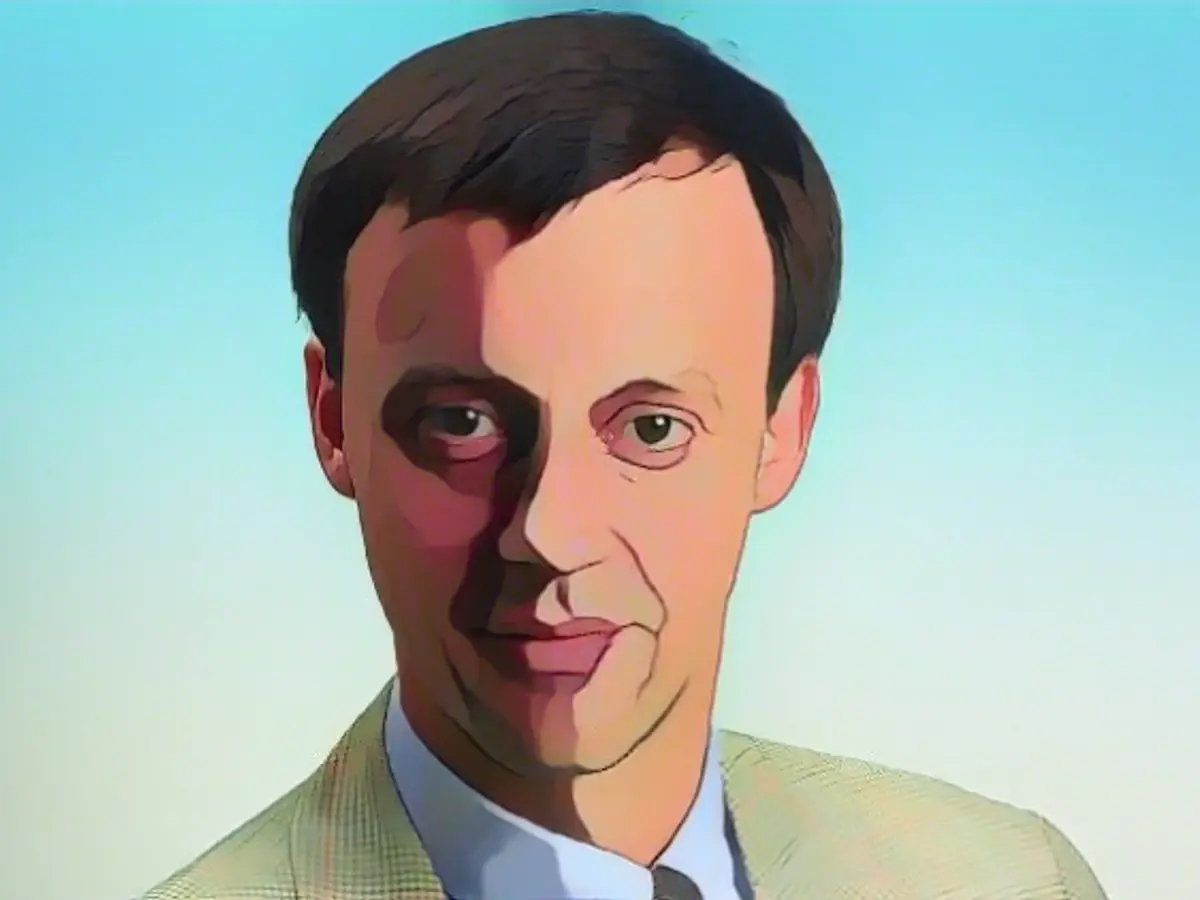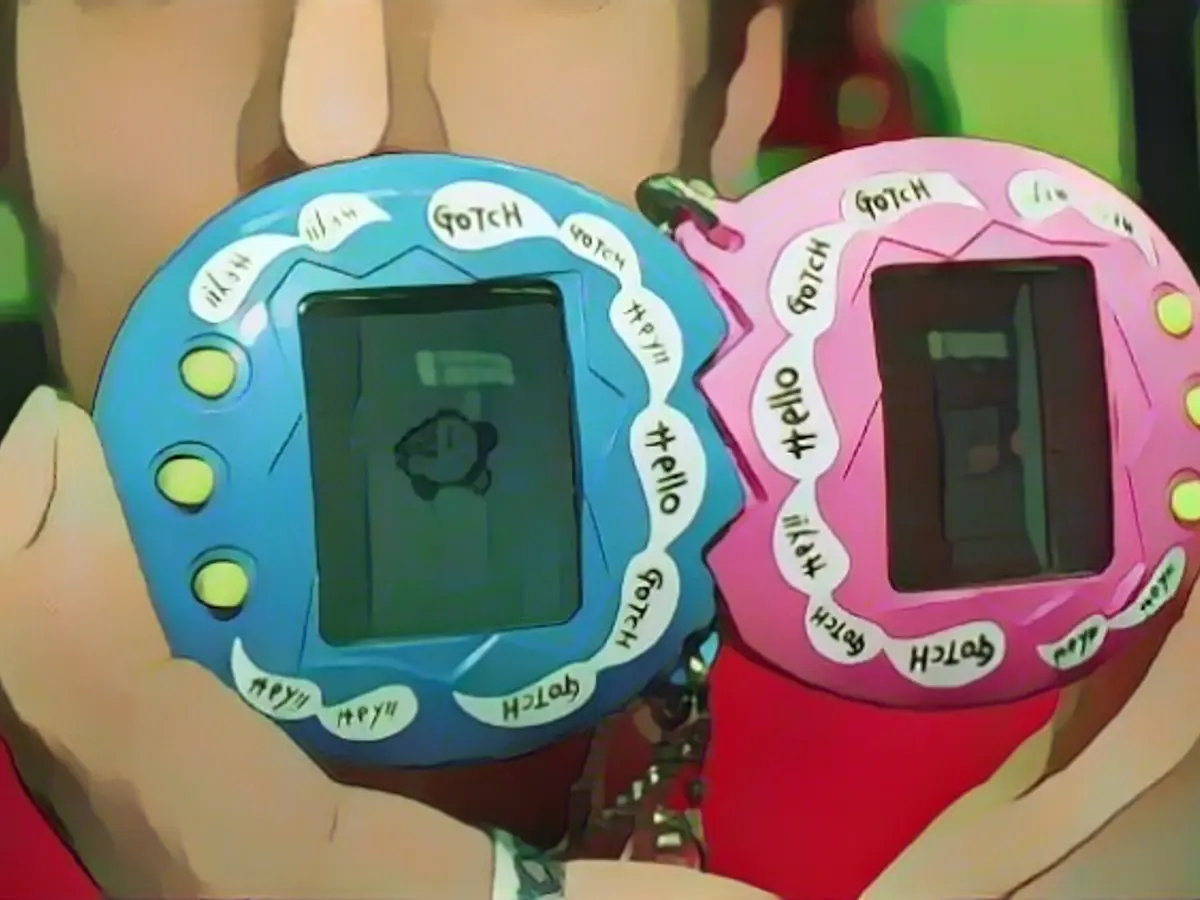Hyper, hyper and reform backlog - The 90s were not as great as Merz says
In terms of fashion and music, the 1990s had a wide range of offerings that many people who were there at the time remember fondly. However, there are fewer reasons for political nostalgia.
Last Tuesday, Friedrich Merz, head of the CDU/CSU parliamentary group, spoke very highly of the politics of the 1990s. The occasion was a frontal attack by the Green Minister of Economics, Robert Habeck. At the start of the Green Party conference in Karlsruhe, Habeck called the CDU a "party of yesterday" and Merz a "chairman of the day before yesterday".
Habeck spoke about a crisis of conservatism that he diagnosed: "While sensible policies are being made in many CDU-led governments at state level, the CDU/CSU in the Bundestag under the chairmanship of Mr. Merz is not in a position to arrive at reality and make viable proposals. It does not know what it wants, but it wants it all the louder and a lot of it. A party from yesterday, led by a chairman from the day before yesterday. This, the crisis of conservatism, threatens to become a loss of confidence in modernity per se."
In the Bundestag, Merz thanked him "expressly and very warmly" for these words, which were of course meant ironically: "Mr. Habeck, you thought it was right to describe my party, the CDU, as a party from the 1990s at your party conference last week," he said, although Habeck had not spoken of the 1990s, but of "yesterday" and "the day before yesterday".
Merz said that he felt "what you said was a great compliment". After all, in the 1990s, there were economics ministers on the government bench "who really understood something about economic policy" - a sentence that triggered laughter from the CDU/CSU parliamentary group. Merz made a similar comment about the foreign ministers of the 1990s. "And we had a finance minister, Theo Waigel, who led Germany safely into the monetary union in ten years despite the greatest fiscal challenges. And, Mr. Chancellor, with Helmut Kohl we had a Chancellor on the government bench who really made history for Germany and Europe with German unity, the European single market and monetary union." Scholz is "light years away" from this.
The time of the "sick man"
During the debate in the Bundestag, FDP parliamentary group leader Christian Dürr noted that "not a single economics minister in the 1990s was appointed by the CDU/CSU, but exclusively by the FDP and SPD". According to Dürr, "a look in Wikipedia" - a compendium that did not yet exist in the 1990s - would have sufficed.

The success of the economics ministers at the time - their names were Haussmann, Möllemann, Rexrodt and Müller - is debatable. In his biography of Kohl, historian Hans-Peter Schwarz calls the FDP politician Günter Rexrodt, who was in office the longest, "not particularly assertive"; together with the then FDP leader Klaus Kinkel, Rexrodt was "unable to effectively promote or even implement far-reaching, well-calculated and politically feasible reform concepts within the coalition". The term "reform backlog" became the word of the year in 1997.
It is also not entirely fair to compare Helmut Kohl and his sixteen years in office as Federal Chancellor with Scholz, who has only been in office for two years. Nevertheless, it is undoubtedly true that Kohl made history. This does not necessarily apply to Merz's very positive memories of the nineties. That doesn't mean banalities such as the saying that anyone who remembers the 1990s didn't live through them. But the 1990s were not just a mixture of Love Parade and grunge, Tamagotchi and tattoos in the breech area, but also Scooter's "Hyper, Hyper", mass unemployment and right-wing extremist violence: in Rostock-Lichtenhagen, Mölln, Solingen and many other places. The 1990s were also the baseball bat years.
Economically, Germany was considered "the sick man of Europe". This judgment by the then Ifo President Hans-Werner Sinn dates back to 2003, when Helmut Kohl had already been out of office for five years. However, Sinn was referring specifically to the period since 1995, when it became clear that the "blossoming landscapes" promised for East Germany in 1990 would be a while in coming.
And then there was "Operation Goldschatz"
Those were crisis years. Theo Waigel, CSU politician and Federal Minister of Finance from 1988 to 1998, so praised by Merz, had to announce record net borrowing in January 1997 at the budget closing for the previous year and was mocked by the opposition as the "lord of the holes". His record was not broken until 2009. (At this time, a certain Olaf Scholz is Minister under Chancellor Angela Merkel, not yet for Finance, but for Labor and Social Affairs).
Waigel succeeds in leading Germany into the monetary union despite the greatest fiscal challenges. However, there were also a few tricks involved. In 1996, Germany's deficit of 3.4 percent was still well above the permissible level of 3.0 percent. In 1997, the decisive year for the introduction of the euro, it was surprisingly only 2.7 percent, although the OECD had assumed in June of the same year that Germany would not meet the so-called Maastricht criteria. A little help is provided for a good cause: Land from the federal railroad assets will be sold in the fourth quarter, for example. Germany is also allowed to deduct the debts of public hospitals from its total debt. The German Institute for Economic Research notes that the reduction in Germany's new debt is "hardly sustainable". However, "Operation Goldschatz" remains without consequences: In May 1997, the Finance Minister wants to have hidden reserves distributed from the Federal Republic's gold and foreign currency treasury in order to meet the euro criteria. However, the Bundesbank is able to fend off "Waigel's bank robbery".
This is all water under the bridge and does not make the nineties any worse than they actually were. Especially as a look back (see chart) shows that the debt records of the time are relative. But it is also clear that the 1990s were not quite as great as Friedrich Merz thinks they were.
Lesen Sie auch:
- Israeli army attacks 400 targets in the Gaza Strip
- Demonstrator sets himself on fire outside Israel consulate in Atlanta
- States promote expansion of nuclear power in Dubai
In response to Merz's positive sentiments about the 1990s, Green Minister of Economics Robert Habeck criticized the CDU as a "party of yesterday" and Merz as a "chairman of the day before yesterday," citing a lack of viable proposals and a crisis of conservatism in the Bundestag under Merz's leadership. During the ensuing debate, Merz thanked Habeck for his words, but several politicians, including Robert Dürr from the FDP, pointed out that all economics ministers in the 1990s were appointed by the FDP or SPD, not the CDU, and that the time's successes and failures were more complex than simply positive memories.
Among the notable political figures of the 1990s, Helmut Kohl, the former Federal Chancellor, is often praised for making history, but criticism is also levied at him for the difficulties faced by East Germany and Germany's economic struggles during this period, which earned the country the title of "the sick man of Europe." It was Stuttgart Finance Minister Theo Waigel, who, despite a few questionable maneuvers, ultimately managed to lead Germany into the monetary union despite significant fiscal challenges.
Source: www.ntv.de








